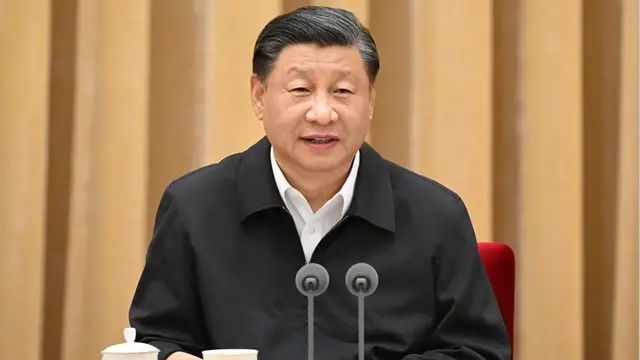The National Conference on Ecological and Environmental Protection was held in Beijing from July 17 to 18. Chinese President Xi Jinping, also general secretary of the Communist Party of China (CPC) Central Committee and chairman of the Central Military Commission, attended the conference and delivered an important speech, emphasizing the importance of thoroughly implementing the thought on socialist ecological civilization with Chinese characteristics for a new era.
Over the past few years, China has played a crucial role in combating climate change worldwide by reducing its carbon footprint, protecting biodiversity, and fostering green transformation. According to a recent report by the International Energy Agency (IEA), China is set to become the global leader in renewable energy capacity by accounting for almost 55 percent of it in 2023 and 2024, further reinforcing its position as the topmost provider. The report also indicates that China will be responsible for nearly 70 percent of all new offshore wind projects and over 60 percent of onshore wind projects globally by next year, in addition to 50 percent of solar photovoltaic projects.
The concept in question is still fresh and not widely recognized in various parts of the globe. It would be practical if an ecological civilization could spread its influence and start by influencing Asia, as the region has significant potential to overcome the challenges of climate risk management. Many parts of Asia need to speed up their infrastructure and urbanization efforts, as the region must invest $1.7 trillion annually in infrastructure by 2030 to maintain growth, eliminate poverty, and address climate change issues. Besides, by 2050, Asia faces up to $4.7 trillion in lost GDP due to increased heat and humidity, resulting in lost working hours. It accounts for over two-thirds of the total negative impact on global GDP.
Countries must work together and coordinate their efforts to meet their environmental and developmental objectives. This is particularly crucial when addressing climate change, transboundary pollution, biodiversity, and ocean sustainability. China's government has acknowledged this and has entered into 41 climate change cooperation agreements with 36 developing countries since 2011, providing roughly 1.2 billion yuan ($166 million) in support of these initiatives. The government has facilitated this by giving directives, modern legislation, financial and banking incentives, and institutional transformations. Consequently, China's progress in green technology has benefited other parts of the globe.
The private sector must be involved in the development of eco-friendly technologies as well. Environmental, Social, and Governance (ESG) mechanisms are now more prominent in ranking and lending to businesses. Chinese companies, including those based in small towns, have emerged as leaders in cutting-edge green industries, such as electric vehicle (EV) companies. These companies have created millions of new jobs, brought prosperity and profits, and significantly contributed to global environmental progress.
Here are a few recent examples of how Chinese companies work with their foreign partners to introduce green technologies. A few days ago, BYD, a Chinese automaker, unveiled plans to construct a production base complex in Brazil, which will cost around three billion reais ($620.17 million). This complex will consist of three plants and create over 5,000 new jobs. The complex will produce not only EVs but also lithium-iron-phosphate batteries. Earlier this year, BYD partnered with Uzbek automaker UzAuto to introduce the latest electric vehicles to Central Asia. In Africa, China invests significantly in many countries to achieve its environmental goals. In Kenya, China has built the largest solar power plant in East and Central Africa. The Garissa solar power plant, which generates more than 2 percent of the total electricity produced in the facility, has a capacity of 50 MW.
Climate change significantly impacts global ecosystems, such as glaciers and ocean systems, which billions of people rely on. For instance, in the Hindu Kush Himalayan region, glacier mass is predicted to decrease by 10 to 25 percent by 2030 and 20 to 40 percent in some subregions by 2050. An international research team has determined that the Tianshan mountains of Central Asia have lost nearly 3,000 square kilometers of glaciers and an average of 5.4 gigatons of ice per year since the 1960s. The authors estimate that by 2050, half of the Tianshan glaciers could be depleted.
It is essential to achieve the goals of ecological civilization for the well-being of all humans and the planet's ecological environment. The cooperation and partnership of the world's leading powers are necessary to achieve these goals on a global scale. As the demand for a safe and healthy environment increases worldwide, humanity enters a new phase of post-industrial development. Thanks to the industrial revolution, humankind gained the necessary tools to conquer and transform nature. However, the new ecological civilization requires us to live harmoniously with nature, including keeping our rivers, lakes, forests, mountains, wetlands, grasslands, and farmlands clean. We all must exert our utmost effort towards attaining this objective.
(CGTN)
 简体中文
简体中文

